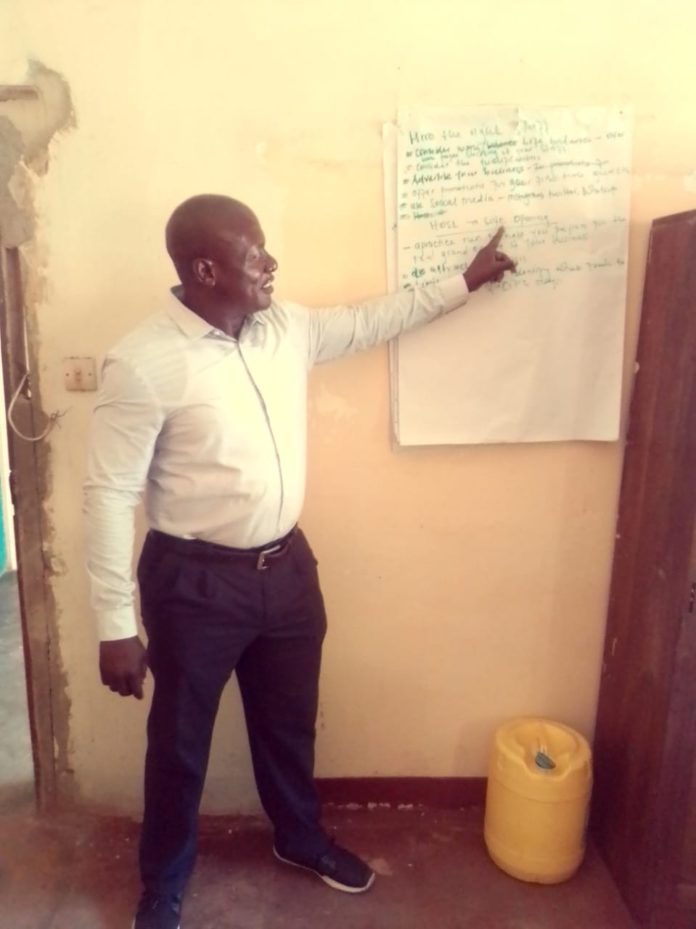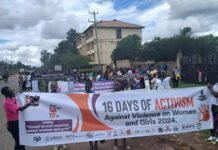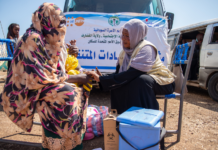By Sharon Kiburi
Nairobi, Kenya: Dismus Omondi is a former prison convict turned into a paralegal, “ I was incarcerated in 1998 for a crime I was innocent for my limited knowledge in the law contributed to me spending more time in prison than necessary,” Omondi narrates.
Omondi was convicted in 2002 on a charge of robbery with violence after being imprisoned in 1998. “In 2007 and seven Kituo Cha Sheria a legal aid program visited the prison in Mombasa to offer legal aid training to prisoners; I am one of the beneficiaries,” reveals Omondi.
After the training Omondi said, he understood the legal system, which gave him the confidence to file for an appeal because he was innocent.
“I, with the help of Kituo Cha Sheria pro bono lawyers, won the case in 2010, and I was released from prison. My family was thrilled they had supported me along the journey and believed in my innocence, which strengthened my will to fight,” said Omondi.
Motivated to give back to society, Kituo Cha Sheria empowered Dismus Omondi to start a justice Centre that supports prisoners with legal aid issues. So far, they have aided fifteen people and integrated ten of them in the Mombasa Centre to assist them in getting back to society.
“I was happy to be out of prison after the many years, but I had a great burden in my heart to help others who were wrongfully imprisoned due to lack of legal aid and little to no knowledge of the legal system” says Dismus.
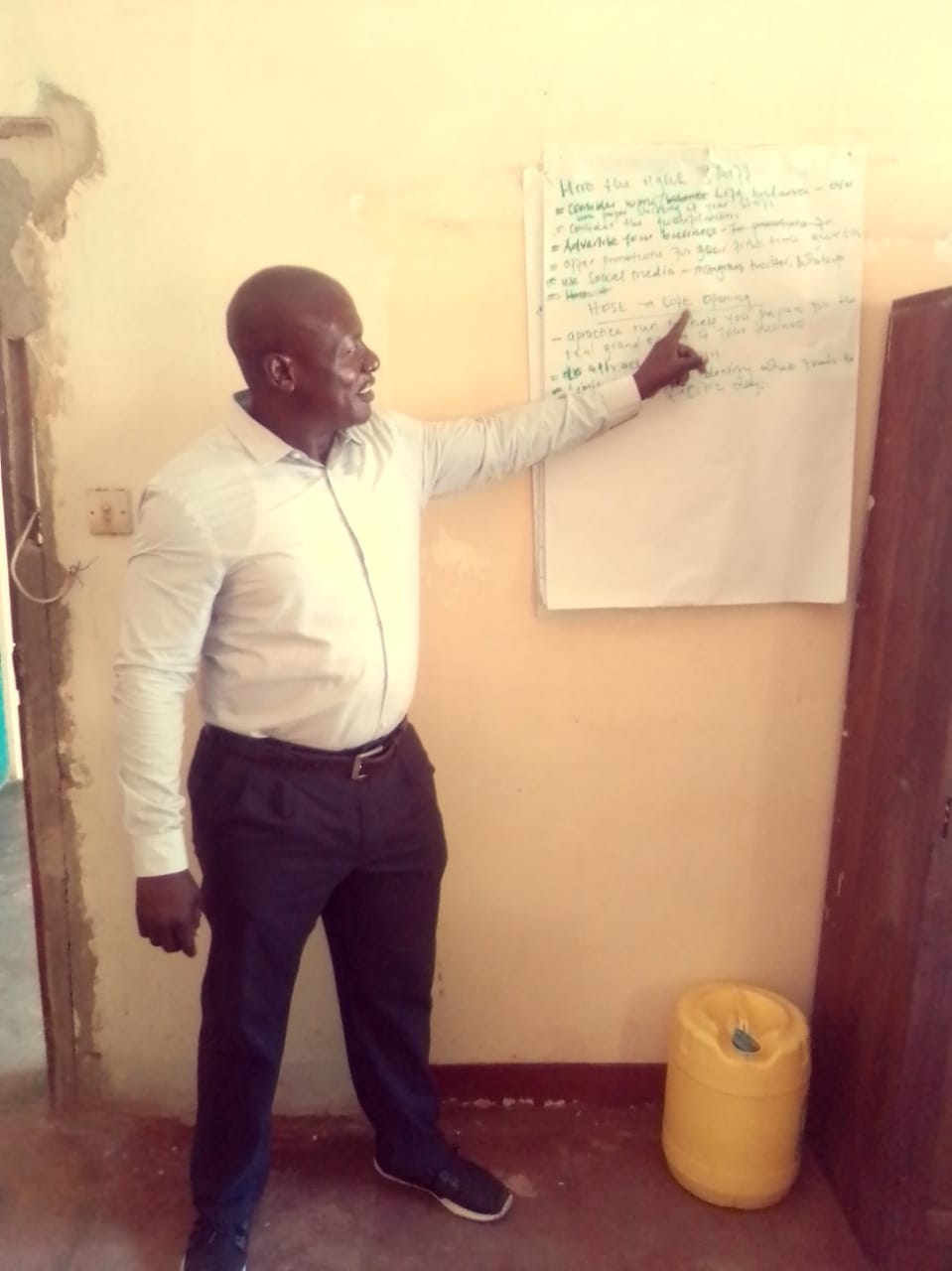
The Legal Empowerment Network brought together four countries; Kenya, Sierra Leone, Indonesia, and South Africa, to discuss a knowledge exchange session on Open Government Partnership (OGP) status in the four countries.
The session explored ways in which the partners could put the power of law in people’s hands. OGP was founded in 2011, and it provides a platform for government to engage with Civil Societies Organisations (CSOs) and citizens.
The platform aims to draft and implement policy commitments on their priority advocacy issues.
The OGP process, in turn, can help strengthen access to justices by developing shared responsibilities to make justice institutions more open, accountable, and responsive to all people. OGP is centered on the idea that an open government is more accessible, responsive, and responsible to citizens and improves the relationship between people.
The government has long-term exponential benefits for everyone. This model ensures direct citizens and CSO’s engagements have a role in shaping and overseeing governments.
OGP’s Independent Reporting Mechanism (IRMs) monitors the two years circle action plans to gauge the Countries progress on commitments. The data collected by the IRMs is used to identify best practices, identify trends and provide new open government perspectives.
Philip Thigo is Kenya’s OGP convener, head of data innovation at the deputy president’s office in Kenya “ Kenya joined OGP in 2011 through the ministry of Foreign Affairs and ICT. Kenya defaulted, and the office of the deputy president took up leadership of OGP.”
Kenya has complied since 2015, featuring in the OGP Bi-laterals between the united states and Kenya in 2016. Kenya is the Global steering committee through His Excellence Deputy President of Kenya William Ruto and Ms. Stephannie Muchai.
Kenya reviews OGP from three lenses the transition, recovery, and resiliency. “We, under the fourth national actional plan, created a deliberate commitment to OGP Resiliency and how to insulate it both from transition, shocks, and resources,” says Philip.
The Country has done four OGP action plans, has five sub-national plans, and over seventy commitments. The active OGP County governments in Kenya are; Nairobi County through the Metropolitan services, Elgeyo Marakwet, Nandi and Makueni.
OGP in Kenya is governed by a vigorously active national multi-stakeholder forum and Steering committee. The Country adopted a franchise model of operation to meet the OGP requirements in a collective mission anchored in the constitution abbreviated OPEN.
- O- Oppen Access ( Increase access to innovative solutions for governments, citizens, and civil societies)
- P-Productive Use ( of open government platform to co-create change from government agencies and enforce transparency, accountability, and citizen engagement for those in the margins)
- E-Evidence ( Evidence and learning generated through OGP are taken up at local, regional, and international levels while leveraging data.)
- N-Normative (ownership of OGP in Africa by governments and the private sector.)
Kenya’s key achievements are: attained Global OGP Leadership status with Steering Committee elections including beneficial ownership leadership group, sustained a vibrant multi-stakeholder OGP network, designed a Unique OGP model, domesticated the Africa peer review mechanism “APRM” into open government in Kenya, and supporting countries with OGP systems, for example, Siera Leone, Burkina Faso, and Uganda. Philip says, “OGP Kenya has shown resiliency in three categories Legislation, institutions, and responsiveness.
OGP Kenya commitment seven of the national action plan four greatly emphasizes access to justice in Kenya.
Dr. Annette Mbogoh, director of Kituo Cha Sheria Kenya, confirms they are access to justice and legal empowerment organization. They have existed for the last forty years. Kenya has had a legal aid act enacted in 2016.
“Our goal is to push the ceiling in access to free legal aid in the country; this is achieved through the national legal aid scheme and national legal aid fund supporting legal services within the state and civil society,” said Dr. Annette.
The legal aid act is yet to be fully functional due to financial constraints that have seen some services not being offered, such as alternative justice systems and community-based justice.
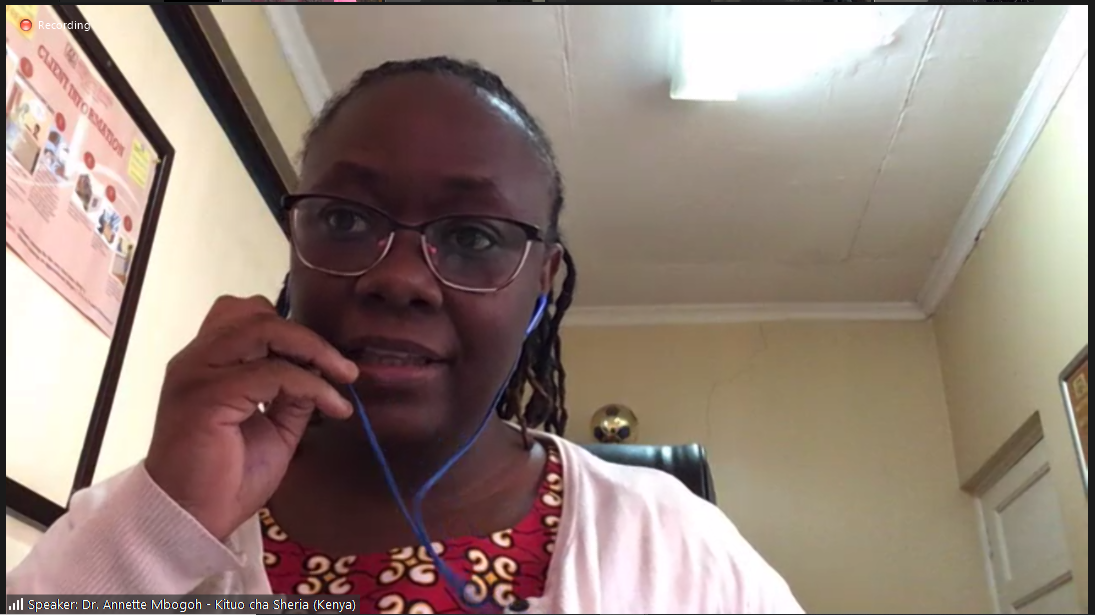
“South Africa, in their third OGP national plan, is proposing to institutionalize the paralegals’ systems in the country,” said Tshenolo Tshoaedi, a community adviser officer in South Africa, a membership and development organization. This proposal is geared towards integrating and strengthening as a permanent grass-root and the broader justice system.
Tshenolo Continuing to say this was informed by aligning the OGP process with Sustainable Developments Goals (SDGs), goal sixteen, and viewing the sector as an enabler to access to justice for marginalized communities. There are concerns about long-term sustainability and how to operationalize the committee to perform to noarch.
In their fifth national action plan, Indonesia has committed to creating legislation to fund legal aid organizations. “This is aimed to increase the quantity and quality of legal aid service; the committee intends to increase the number of legal aid beneficiaries, increase local regulations on legal aid, and improve the Satisfaction index up to twenty-five percent. The commitment is yet to meet its target and specialized services to the marginalized,” said Febi Yonesta of the Legal Aid Foundation in Indonesia, an umbrella foundation with about seventeen local chapters across Indonesia.
Eleanor Thompson working with Namati Sierra Leone incorporates lawyers and paralegals community justices to help communities know the law, use the law, and shape the direction, particularly on issues around land rights, environment, and justice rights generally.
Access to justice commitment under the third national action plan in Siera Leona has been increasing access to justice at the community level. It is an exertion of the second national action plan increasing transparency and case management structure at the local level,” said Eleanor. Building and supporting Siera Leone’s government policy agenda to restore confidence in the justice system’s impartiality. There are strides made, but there is a lot to be yet achieved.
Lack of proper financing is the most considerable hindrance to access to fair and effective justice. The legal empowerment network is the largest community of grassroots justice defenders in the world.
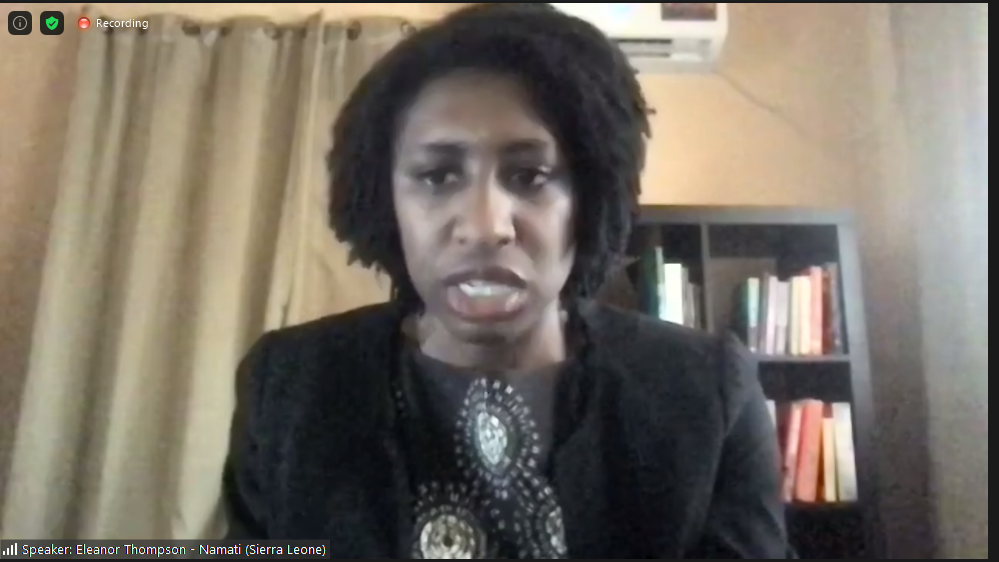
They bring together more than two thousand four hundred civil societies and more than nine thousand four hundred individuals. “our goal is to cultivate a global movement for grassroots justice, one capable f tackling the greatest challenges of global justice systems of our time. We want to work together to enable people to know the law, use the law and shape the law to fight injustices,” said Amee Ongeso Legal Empowerment Network Africa.

